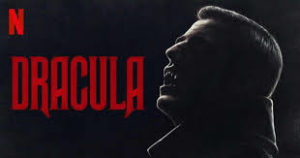[This post contains spoilers for the final episode of the 2020 Netflix series, Dracula. Proceed with caution.]
The current rendition of Dracula on Netflix, created by Mark Gatiss and Steven Moffat, was providing me with a delightfully gory evening of blood and horror when it stopped me dead. Out of nowhere, Count Dracula himself delivered one of the finest descriptions of the miracle of modern progress since Adam Smith marvelled that the greatest monarch of his time was not as far removed from the peasantry in terms of wealth than the peasant was from the monarch of an undeveloped country.

Adam Smith was able to make progress visible by comparing the rapidly industrializing England and Scotland with countries that had not yet experienced the rapid increase in wealth brought on by the division of labor and the increase of specialization and mechanization. These changes are so widespread and rapid in the 21st century, however, that we are liable to let them go unnoticed. As GK Chesterton noted, “We are perishing for want of wonder, not for want of wonders.” Or, if you prefer, George Will observed more recently in his 2019 book The Conservative Sensibility that “It is astonishing that we do not live in a state of perpetual astonishment.”
Standing in the middle of the modern world, we forget about the wonders that surround us. Gatiss and Moffat’s Dracula notices every single one of them, though. Very early in the third and final episode of the series, he awakens in the somewhat dreary town of Whitby after more than a century of slumber. He invades the completely ordinary home of Kathy and Bob, consumes Bob, and then decides to have a bit of a chat with Kathy.
“What is wrong with your servants, Kathleen? I’m assuming you have staff; you’re clearly very wealthy.”
“Wealthy?”
“Yes, well, look at all this stuff! All this food. The moving picture box. And that…that thing outside. Bob calls it ummm, a car? Is that yours? And this treasure trove is your house?
“It’s a dump!”
‘It’s amazing. Kathleen, I’ve been a nobleman for 400 years. I’ve lived in castles and palaces and among the richest people of any age. Never, NEVER have I stood in greater luxury than surrounds me now. This is a chamber of marvels! There isn’t a king, or queen, or emperor that I have ever known or eaten who would step into this room and ever agree to leave it again. I knew the future would bring wonders. I did not know it would make them ordinary.“
(He’s equally fond of Tinder, which he uses as a sort of UberEats.)
It will take more than popular culture to put a stake in the heart of the 21st century’s refusal to see the amazing world humanity has created, but this 90 second scene from Gattis and Moffat’s Dracula is a very good start, and it gives us all a lecture clip to die for.


READER COMMENTS
Phil H
Jan 21 2020 at 8:48pm
The thing that always struck me, more than 20 years ago now, was the provision of fresh green vegetables for sale in British supermarkets, beautifully packaged, less than 24 hours after they were picked in Africa. I was watching Star Trek at the time, and I thought, their magic food materialiser is good, but I’m not sure this epic supply chain isn’t better.
Jon Murphy
Jan 22 2020 at 8:15am
Oh man, I agree 100%.
I had a somewhat similar experience some years ago. I was living in New Hampshire and doing volunteer work through my church helping Somalian refugees navigate and assimilate into American life. Watching the process through their eyes was amazing. Just two examples:
-The toilet (“You mean this country has so much water that we don’t drink out of this but use it to expel waste?”)
-The supermarket (“All this food is available for purchase? I’ve never seen this much food in one place! How do you have fresh fruit in the middle of winter?”)
Thaomas
Jan 22 2020 at 2:02pm
Is it better than Marx’s? [Even if it is, as a prose poem, Marx will still be a better citation because of authority and priority.]
Jon Murphy
Jan 22 2020 at 2:52pm
Marx’s what? What is “it”?
Comments are closed.